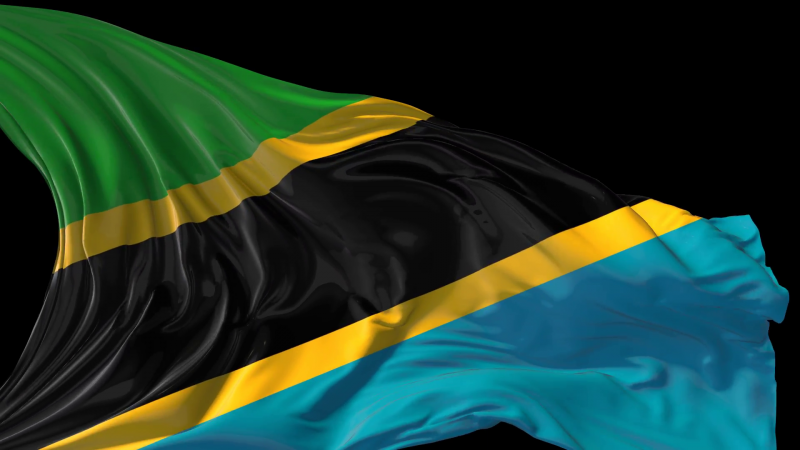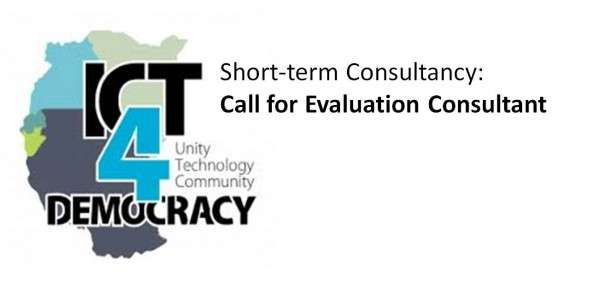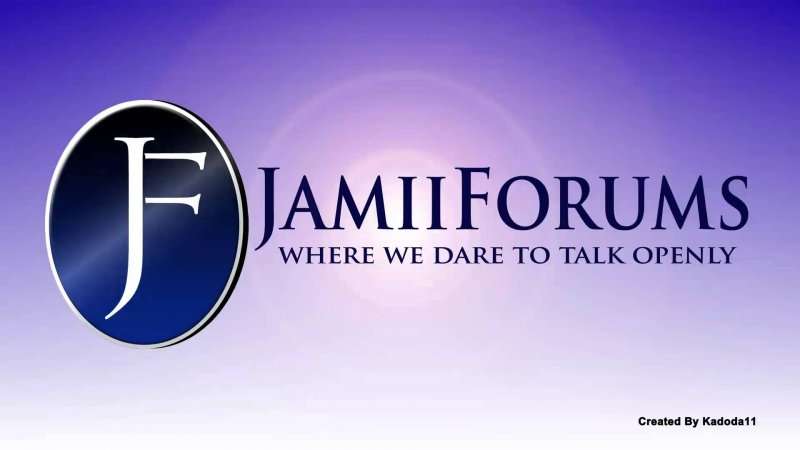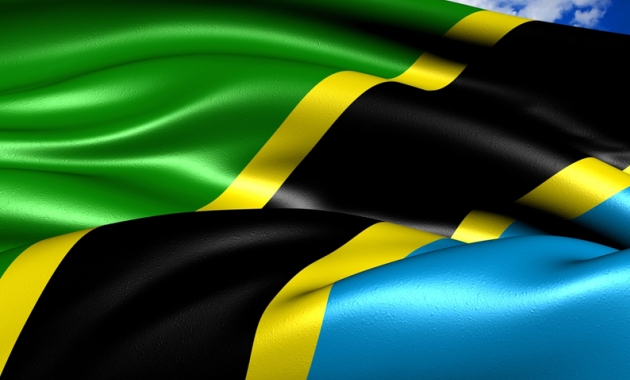Open Letter |
In recent months, Tanzania has faced increased measures resulting in the shrinking of civic and democratic space in the country. Draconian legislation enacted since 2015 and legal and extra-judicial methods used to harass human rights defenders, threaten independent journalism, and to restrict freedoms of opinion and expression, peaceful assembly and association have been used to reduce the avenues for civic expression.
Recent legislative, policy and practical developments have led to increased international and regional attention on Tanzania. The surge in the number, and strengthening of the wording, of statements delivered by the UN High Commissioner for Human Rights indicate that global concern is growing over the situation in the country, which for decades demonstrated a commitment to improving the human rights of all people, both nationally and within East Africa.
Ahead of the 41st regular session of the UN Human Rights Council (“the Council”), which will
take place from 24 June-12 July 2019, 38 organisations have written to the Permanent Representatives of Member and Observer States of the United Nations Human Rights
Council to deliver statements, both jointly and individually, and to engage in bilateral démarches to address the ongoing deterioration of the human rights situation in the United Republic of Tanzania.
See the open letter here.
Call for Evaluation Consultant: ICT4Democracy in East Africa Network
The Collaboration on International ICT Policy in East and Southern Africa (CIPESA) is seeking an evaluation consultant to establish the achievements, outcome and challenges registered by the ICT4Democracy in East Africa Network during the period June 2016 to December 2018. The evaluation will assess the appropriateness, effectiveness and outcomes of the network in relation to the program objectives
Closing date for applications: 17:00 hours East African Time (EAT) on Friday December 7, 2018
Further details on the scope, eligibility and how to apply are available here.
Tanzanian Court Acquits Jamii Forums Founders on One of Three Charges
By Ashnah Kalemera |
A Tanzanian court has acquitted the founders of popular online discussion platform Jamii Forums, who were charged over failure to comply with a police order to disclose the identity of two users of their platform.
The magistrate’s court at Kisitu in the capital Dar es Salaam found that Maxence Melo and Micke William had no case to answer in the case, in which the two were alleged to have obstructed investigations in contravention of Section 22(2) of the Cyber Crimes Act, 2015 by refusing to comply with an order to disclose their platform users’ data. The ruling cuts the number of cases against Melo and William to two.
Reacting to the June 1, 2018 decision, Melo stated that it was a “victory for anyone who would like to see freedom of expression flourish” in Tanzania. He said he was glad to have only two outstanding cases, having recently endured four court appearances over five days.
In December 2016, Melo was charged with three offences: two counts of not complying with a disclosure order under Section 22(2) of the Cyber Crimes Act (2015) and one count of managing a domain that is not registered in Tanzania under Section 79(c) of the Electronic and Postal Communications Act (2010). Melo was initially charged alone but William was subsequently added to the cases as a co-accused, since he is a shareholder in Jamii Media, the legal entity under which Jamii Forums is run.
Section 22(2) of the Cyber Crimes Act relates to unlawful interference with investigations and refusal to comply with an order under the Act. The penalty, upon conviction, is a fine of three million Tanzania Shillings (USD 1,300) or imprisonment for one year, or both. Meanwhile, Section 79 of the Electronic and Postal Communications Act (2010) provides for the regulation of all electronic communication numbering and electronic addresses by the Tanzania Communications Regulatory Authority (TCRA). Part C of the section mandates the authority to perform oversight role of management of .tz – the country’s code Top Level Domain (ccTLD).
The charges stemmed from Jamii Forum’s refusal to comply with police disclosure notices to reveal the Internet Protocol (IP) addresses, email and phone numbers of users, whose identities authorities sought after whistleblowing corruption scandals in the oil and banking sectors.
Initially, Jamii Media, went to court challenging the disclosure orders and specifically provisions of Section 32 and 38 of the Cybercrime Act. However, the petition was dismissed in a ruling that dealt a blow to intermediary liability rules in Tanzania.
During court proceedings in the now dismissed case, prosecutors called four witnesses including two officials from the Tanzania Police cybercrime department. Court also heard testimony from the Human Resource Manager of CUSNA Investment LTD, the company which made a defamatory report to police regarding the information disclosed by the whistleblowers. The fourth witness called by the prosecutor was the Acting Deputy Registrar of Intellectual Property at Tanzania Business Registrations and Licensing. Proceedings then stalled with the prosecution indicating that it had no further witnesses to call.
Since its enactment in 2015, state authorities in Tanzania have used the Cyber Crimes Act to arrest and prosecute individuals for expressing critical opinion. Reportedly passed in the middle of the night, the Act is one of many recent laws in Tanzania that have been criticised for disregarding free speech and access to information, among other citizens’ constitutionally guaranteed rights.
Hearings in the remaining two cases against Melo and William are scheduled to continue during June.
Tanzania Issues Regressive Online Content Regulations
By Ashnah Kalemera |
Tanzania has issued online content regulations that oblige bloggers, owners of discussion forums, as well as radio and television streaming services to register with the communications regulator and to pay hefty licensing and annual fees.
There are three types of licences. A license for provision of online content services comes at an initial cost of TZShs 1.1 million (USD 484) comprised of an application fee of USD44 and an initial licencing fee of USD 440. In addition, there is an annual licence fee of USD440, and a similar amount has to paid for licence renewal after three years.
A licence to stream radio or television content on the internet costs TZShs 250,000 (USD110), with annual licence fees set at USD 88. This licence also has to be renewed after three years at a cost of USD 88.
The Electronic and Postal Communications (EPOCA) (Online Content) Regulations, 2018, which were issued on March 13, 2018, join a catalogue of legislation related to online content in Tanzania that threatens citizens’ constitutionally guaranteed rights to privacy and freedom of expression. The regulations are also likely to negatively impact on an already fragile intermediary liability landscape in a country fraught with increasing media repression and persecution of government critics.
When the Tanzania Communications Regulatory Authority (TCRA) initially published the draft regulations last September, they did not have the requirement to apply for online content service licences as set out in Regulation 14 of the enacted regulations. It states: “Any person who wishes to provide online content services shall fill in an application form as prescribed in the First Schedule and pay fees as set out in the Second Schedule to these Regulations.”
Applicants are required to provide their company details including physical address, shareholding, citizenship of shareholders/directors and tax registration. The communications regulator, TCRA, has the right to cancel licences over non-compliance.
The regulations that have been issued are more regressive than the draft which the regulator issued in September 2017 for public comment.
See CIPESA’s full analysis of the draft EPOCA Content Regulations, 2017 – available in English and Swahili.
Under obligations of internet cafes, the final regulations introduced two clauses that threaten user privacy. Under regulation 9, café owners are required “to ensure that all computers used for public internet access are assigned public static IP addresses”. This could inhibit the use of circumvention tools such as Virtual Private Networks (VPN) that rely on dynamic IP address protocols, and which citizens resorted to using in neighbouring Uganda during state-initiated interruptions to communications.
Further, the regulations extend café owners’ obligations to install camera equipment to include registration of users “upon showing a recognised identity card”. Pursuant to regulation 9(2), recorded surveillance and the user register “shall be kept for a period of twelve months.”
Several regressive provisions from the draft version were also passed. Regulation 6(1) requires licenced service providers who provide online content or facilitate online content production to terminate or suspend subscriber accounts and remove content if found in contravention of the regulations, within 12 hours from the time of notification by TCRA or by an affected person. This requirement places a heavy technical and human resource burden on content hosts and providers to have in place competencies to handle complaints within 12 hours.
Swift content restriction or removal is also required of online content hosts under regulation 8(b) and content providers and users under regulation 5(1)(g). As we argued in an earlier brief, while content such as revenge pornography and that which promotes violent extremism may be justifiably removed promptly, there is a danger that the regulations may be applied unjustifiably to content such as that relating to exposure of corruption or human rights violations.
Whereas regulation 16 provides for a complaints handling procedure, the regulations do not provide for the process nor mechanisms for legal recourse over contested content.
Regulation 5(1)(e) requires content providers to “have in place mechanisms to identify source of content”. This obligation poses a threat to the right to anonymity and whistleblowing and may lead to self-censorship.
Moreover, Regulation 12 on content prohibited from publication lists restrictions with broad definitions and which have potential to limit freedom of expression. In terms of scope, it includes unspecified content that “causes annoyance”; “uses disparaging or abusive words which is calculated to offend an individual or a group of persons”; and is “crude”, “obscene” or “profane” including in local languages.
Regulation 12 also prohibits publication of “false content which is likely to mislead or deceive the public except where it is clearly pre-stated that the content is i) satire and parody ii) fiction; and iii) where it is preceded by a statement that the content is not factual.”
Nonetheless, the regulations have some positive elements, among them regulation 10(b) which requires users to use device passwords to ensure that unscrupulous and unauthorized persons do not access their social media accounts.
The requirement for provision of easily accessible user terms and conditions by licensed service providers, adoption of a code of conduct for content hosting, and publication of a safe internet use policy for internet cafes, are also commendable in promoting user awareness of platform policies. The regulations also provide important safeguards for child protection online, such as regulation 13 which prohibits children’s to access to prohibited content online.
In a boost to privacy and data protection, regulation 11 prohibits unauthorised disclosure of “any information received or obtained” under the provisions of the regulations, except where the information is required for law enforcement purposes. Furthermore, regulation 11 restricts use of information only to the “extent” that is “necessary for the proper performance of official duties.” Nonetheless, in the absence of data protection and privacy legislation in Tanzania, these safeguards could be rendered of little value and hence prone to abuse.
It remains to be seen how the new regulations will be enforced and how they will impact on citizens’ rights online. However, given Tanzania’s history of predatory action against internet users following the enactment of the Cybercrime Act, 2015, the new regulations are likely to be utilised to further undermine the internet freedom situation in the country.
Analysis of Tanzania’s Electronic and Postal Communications (Online Content) Regulations 2017
Policy Brief | The proposed Electronic and Postal Communications (Online Content) Regulations, 2017 join the catalogue of legislation related to online content in Tanzania that threaten citizens’ constitutionally guaranteed rights to freedom of opinion and expression and the right to seek, receive and impart information. The regulations were developed pursuant to section 103(1) of the Electronic and Postal Communications Act, 2010 (EPOCA), which empowers the Minister of Communications to make regulations on content related matters. Enacted in March 2010, the EPOCA aims to keep the communications sector abreast with developments in the electronic communications industry by providing for a comprehensive regulatory regime for electronic communications and postal communications service providers.
The regulations specify obligations of service providers and users of online platforms including social media, discussion forums, and online broadcasts (radio and television). They also confer powers upon the Tanzania Communications Regulatory Authority (TCRA) to regulate online content, including through registration of users and platforms, and taking action against non-compliance with the obligations, such as ordering the removal of “prohibited content.”
The regulations have some important provisions and set minimum standard requirements with regards to the protection of children online, fighting hate speech and extremism online, and promoting user responsibility and digital security practices. However, the regulations should to reviewed and amended to have clear, unambiguous definitions and wording, and quash the requirement for registration of bloggers and users of similar online platforms. It is also essential that not too much power is vested in TCRA with regards to content take-downs and that diversity in content availability online is promoted. The obligations set out should not turn content service providers and publishers into monitors, by handing them responsibility such as use of moderating tools to filter content, conducting content review before publication, and undertaking mechanisms to identify sources of content.
Moreover, there should be a clear appeal mechanism against orders to remove or block content, and such remedial measures should also be applicable once an order for blockage or removal has been issued but not yet been effected. Overall, the regulations should uphold citizens’ rights to privacy, access to information and free expression. Furthermore, TCRA, pursuant to EPOCA’s objectives of promoting a developed telecommunications sector in Tanzania, should ensure that the regulations foster internet access and affordability without placing undue requirements on service providers or making costs prohibitive, which would act as a barrier to market entry, including for public access facilities such as internet cafes.
Read CIPESA’s analysis of the implication on access to the internet, intermediary liability, user privacy, censorship, surveillance and freedom of expression of the proposed regulations in Tanzania.





